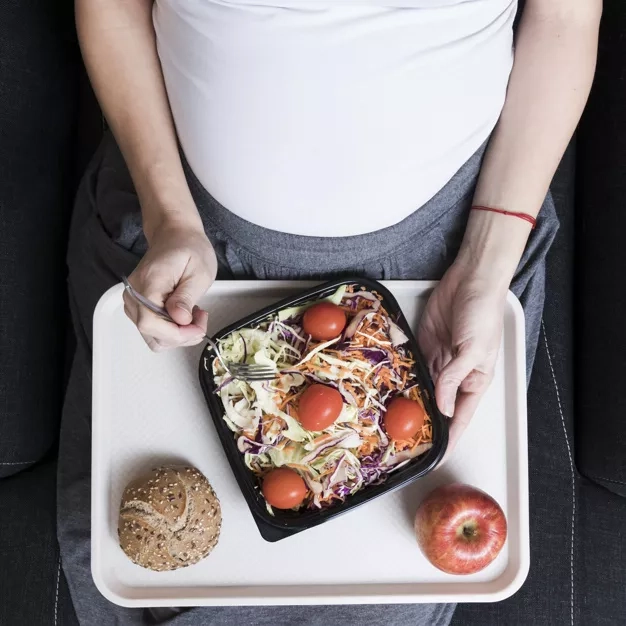Pregnancy myths vs facts

From the day people come to know about your pregnancy, you will be bombarded with well-meaning but confusing and always conflicting advice from friends, family, the annoying neighbours, and that complete stranger when you are in a department store. "Hmmm, your tummy has not gotten that large, so...", "Your face is glowing, you will definitely have a..." — the list of myths is endless. We will make your life a bit easier as we go on to break down the wall of superstition and facts so that you can enjoy a safe and enjoyable pregnancy.
Myth: Keep your feet up for nine months

Fact:
While pregnancy is definitely the time to abandon risky activities, doing light, regular exercise carries more benefits than risks. Researchers have found that women who stay active tend to have short labours, regain their pre-pregnancy shape, have a lower chance of postpartum depression, and sleep better than those who don’t exercise. However, you should also know that pregnancy is a time for maintaining your fitness routine and not taking up a new sport. Specialists believe aerobic exercise (the kind that leaves you slightly out of breath) will keep your heart and lungs healthy. Brisk walking in the morning can make a huge difference too.
According to fitness experts, light swimming is a perfect antenatal exercise. The body joints that usually soften during pregnancy are supported, and the water will keep you cool.
Myth: Whatever you eat you need to eat for two

Fact:
Okay, you're eating for two, but keep in mind that the other person you're feeding is too small, so being pregnant won't give you an excuse to double your calorie intake. As a guide, you are looking at between an extra 200 and 300 calories a day. Overeating and making the wrong food choices can lead to complications such as gestational diabetes and excessive weight gain, both of which can be harmful and can make labour more difficult. Consequently, eating well – rather than calorie counting – is the key during your pregnancy and means ensuring you eat good quality protein (eggs, meat, fish and beans). You should also be eating lots of vegetables and carbohydrates (unrefined), like brown bread, rice, etc. Good snacks include fruit, nuts (avoid peanuts), seeds, oatcakes/biscuits etc.
Myth: If you are carrying high, it's a boy

Fact:
Guessing the baby's gender is the part of pregnancy that is most full of old wives' tales. The most common myth is that boys make neat little bumps while baby girls cause the weight to spread more evenly around your abdomen — something that could seem plausible. But ideas like predicting a baby's sex by dangling a wedding ring over your belly and seeing which way it swings are surely traditional folklore. While these urban legends can be a fun way for others to get involved with your pregnancy, there's a danger they can distract from medical problems. And theories like light bleeding during pregnancy, which would indicate a boy while extreme morning sickness would signify that you are carrying a girl, are nowhere proven. While bleeding during pregnancy is common, it's always safe to check with your doctor. Even though scans aren't 100% accurate, the only way to be sure about your baby's gender is when you meet your baby.
Myth: Backaches are an unavoidable part of being pregnant

Fact:
You can avoid backaches with some simple changes. First, pay attention to your posture. Don't arch your back by pulling your shoulders back but not your abdomen. Don't wear shoes with any heel height; it will force you to arch your back, which puts pressure on the lower back. Try pelvic rocking to give your back a break, and squat throughout the day to stretch the muscles in your back.
Myth: Slow heart rate means a baby boy and a fast heart rate means a baby girl

Fact:
A normal foetal heart rate is between 110 and 160 beats per minute (bpm), although some people think if it’s faster (usually above the 140 bpm range) it’s a girl and if it’s slower it’s a boy. However, there is no evidence or statistical proof to support this theory. Your baby’s heart rate will probably differ from one prenatal visit to the next anyway, depending on the age of the fetus and activity level at the time of the visit. Also, changes in a pregnant woman's heart rate and blood pressure caused by stress, as well as long-term anxiety, can affect the heart rate of her growing baby.
Myth: You shouldn't have sex when you are pregnant

Fact:
Making love will not hurt your baby or your partner. In fact, experts encourage lovemaking during pregnancy. It will also help strengthen the bond with your partner, which you will both appreciate when the baby arrives. However, there are a few medical conditions where sex is not advised. Do consult with your doctor if you are unsure.
Myth: You can't have hot baths
Fact:
Again, a folklore that you’re not to take baths because germs could get into your vagina and be passed to the baby. This is not entirely true. When everything aches, it can be tempting to sit under a steaming hot shower or relax in a tub. Baths are a great source of relaxation and are very good for pregnant women. Avoid using too hot water or temperatures above 38 degrees Celsius. These can cause your body temperature to rise, which can cause problems for a developing baby, particularly in the first trimester. Overheating can increase the risk of neural tube defects such as spina bifida, and staying in hot water for too long can cause dehydration and dizziness in pregnant women. But your baby is definitely not in danger of getting germs from bathing as the baby remains protected by the amniotic sac and the mucous plug.
Myth: You can't get pregnant as long as you are regularly breastfeeding your baby.

Fact:
Tell this to thousands of women who are now with their second child, while the older one is hardly a year of age, or less! Hence, it is always advisable to use some form of contraception to avoid an unwanted pregnancy. Breastfeeding is reliable only up to a certain period, about one-and-a-half months after delivery. However, a woman can get pregnant even without having her first menstrual cycle post-delivery, i.e., in lactational amenorrhea. There are many simple methods available for contraception. Choose the right one for yourself.
Recent Blog Posts
- 01 Aug 2025
- 02 Jun 2025
- 28 Mar 2025
- 10 Nov 2023
- 19 Oct 2022
